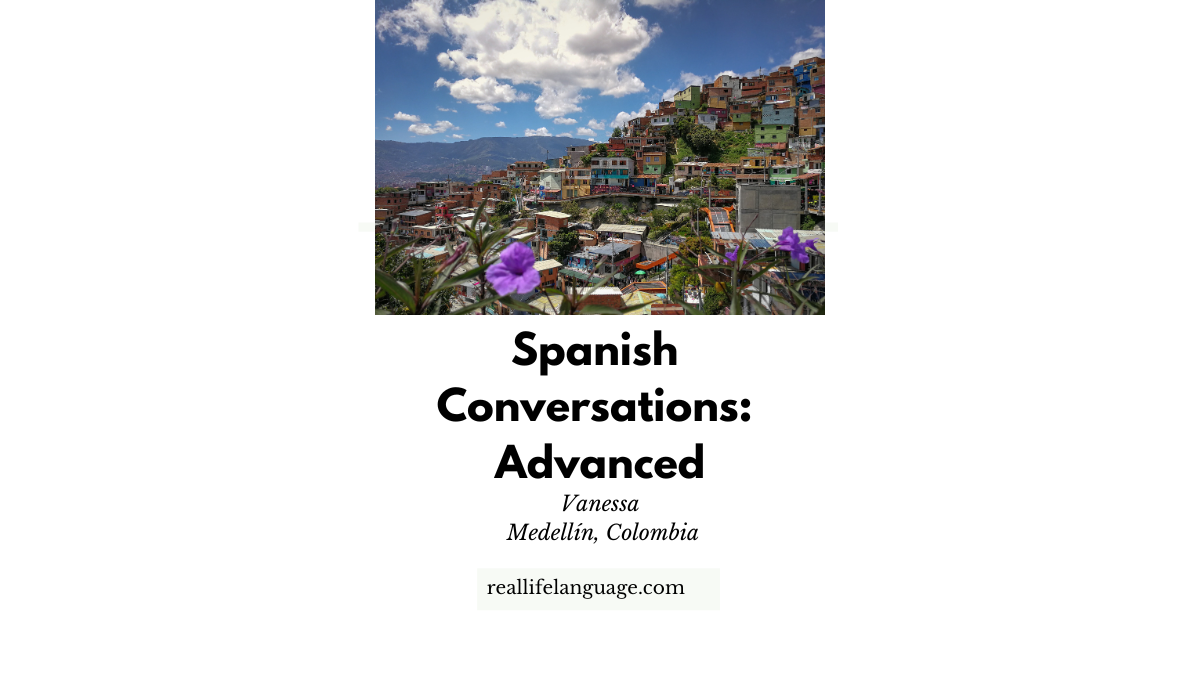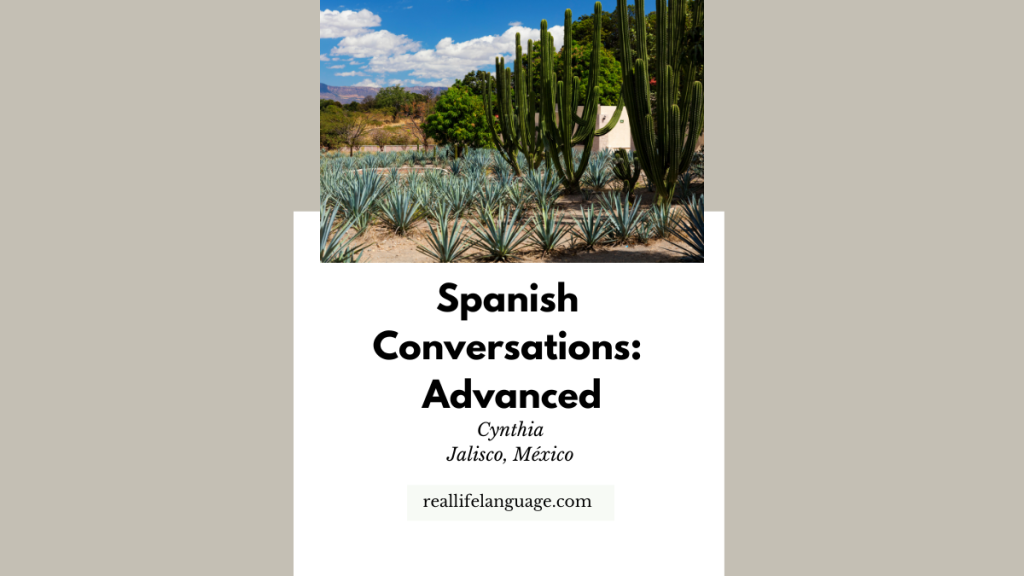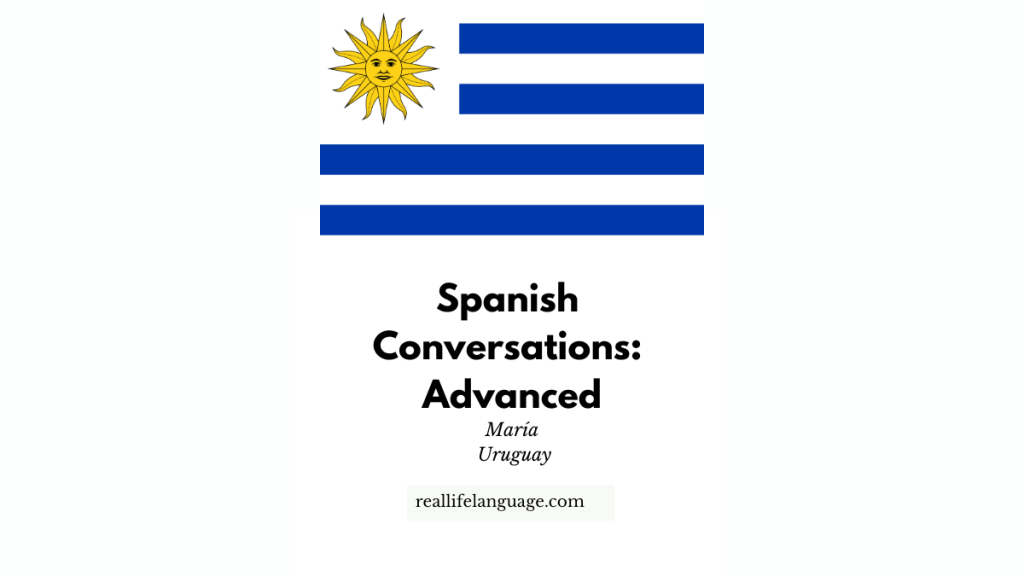
This article summarises a conversation with Vanessa, a Spanish teacher and entrepreneur from Medellín, Colombia, and is designed to help readers learn advanced Spanish through authentic topics: work, gender, economy, housing, education, current events, leisure and food. If you want to learn advanced Spanish, read the vocabulary, model sentences and grammar tips that follow each section.
Life and work: digital teaching and flexibility
Vanessa explains how moving to the United States changed her plans and led her to create online projects teaching Spanish. Working online gave her freedom to travel and shape her own schedule. Useful vocabulary and phrases for learners:
- trabajar en línea — to work online
- proyecto — project
- Flexibilidad laboral — work flexibility
Model sentence: Ella empezó a trabajar en línea y eso le dio flexibilidad para viajar. (She started to work online and that gave her the flexibility to travel.) If the goal is to learn advanced Spanish, practice describing career changes using the preterite for single events and the imperfect for background.
Women and generational change
Vanessa describes how women in Colombia went from having almost no public voice to greater political and cultural participation. She notes progress but emphasises ongoing challenges in gender equity and personal safety.
- derechos de las mujeres — women’s rights
- equidad de género — gender equity
- me siento segura — I feel safe
Useful question for conversation practice: ¿Cómo ha cambiado la vida de las mujeres en tu país entre generaciones? (How has women’s life changed across generations in your country?) To express contrast: Antes no podían votar; hoy participan activamente en política.
Economy: inflation and daily impact
Vanessa explains that Colombia’s economy improved after the pandemic but inflation remains a problem. Rising food prices affect everyday consumers.
- inflación — inflation
- precios suben — prices rise
- consumidor final — end consumer
Phrase to practise: La inflación ha subido y ahora la comida es más cara. (Inflation has risen and now food is more expensive.) If learners want to learn advanced Spanish on economic topics, practise using verbs like aumentar, afectar and phrases like tener un déficit.
Housing: types and access
Housing in Colombia varies: studio apartments for young people, government-subsidised housing (vivienda de interés social, VIS) and more expensive private housing. Vanessa also mentions informal settlements (“invasiones”) where displaced families settle without services.
- estudio — studio apartment
- vivienda de interés social (VIS) — social housing with subsidies
- invasiones — informal settlements
Useful sentences: Para comprar una VIS necesitas aproximadamente el 30% del valor inicial. (To buy a VIS you need roughly 30% of the initial value.) Practice negotiating rent and discussing housing plans with conditional sentences: Si tuviera más dinero, compraría una casa.
Education: public, private and technical training
The Colombian system starts preschool at age three and finishes secondary school at grade 11. Technical options exist through SENA, a public institution offering practical training. Public universities are limited and competitive; private universities are expensive.
- preescolar — preschool
- bachillerato — high school diploma
- SENA — National Learning Service (technical training)
Conversation prompt: ¿Prefieres la formación técnica o la universidad tradicional? ¿Por qué? (Do you prefer technical training or traditional university? Why?) Grammar tip: practice subjunctive for opinions: Es importante que exista formación técnica accesible.
Current events: global effects of conflict
Vanessa discusses how the Russia–Ukraine war affects the world, particularly through energy and raw material markets, which can worsen inflation in Latin America.
- guerra — war
- crisis humanitaria — humanitarian crisis
- materias primas — raw materials
Useful sentence: El conflicto aumentó los precios de la energía y eso impacta la economía local. Practice giving summaries of news using connectors: Además, por lo tanto, sin embargo.
Parties and leisure in Medellín
Social life often includes barbecues (parrillas), shared costs and music that depends on age—merengue, salsa, vallenato or reggaetón. Medellín also offers concerts, theatres and nearby weekend trips to Guatapé or Río Claro.
- parrilla — barbecue
- fiesta hasta el amanecer — party until dawn
- plan de fin de semana — weekend plan
Invitation phrases: ¿Te gustaría venir a la parrilla el sábado? (Would you like to come to the barbecue on Saturday?) Practice time expressions and sequencing to describe events.
Food: regional dishes and vocabulary
Colombian cuisine is regional. Vanessa highlights ajiaco (Bogotá), seafood on the Caribbean coast, and bandeja paisa and morcilla (blood sausage) in the Andean region. Coffee is a national symbol.
- ajiaco — chicken and potato soup from Bogotá
- bandeja paisa — rice, beans, plantain, chicharrón, morcilla, avocado
- morcilla — blood sausage
Practice ordering and describing food: Quisiera probar la bandeja paisa, por favor. (I would like to try the bandeja paisa, please.) For advanced practice, describe ingredients and cooking methods using the passive voice: La morcilla se prepara con sangre y arroz.
Pandemic and remote work: pros and cons
For Vanessa the pandemic was mixed: it prevented travel and visits to family, but it was a blessing to be with family and to already be working online. It opened professional opportunities.
- estar con la familia — to be with family
- apertura de oportunidades — opening of opportunities
Grammar tip: to contrast past experiences, practise the imperfect vs preterite: Antes viajaba mucho; durante la pandemia, trabajaba desde casa.
Conclusion
Vanessa’s conversation offers many real-life topics for learners who want to learn advanced Spanish: workplace vocabulary, gender and safety, economic terms, housing, education, news, social life and gastronomy. Use the model sentences, vocabulary lists and grammar tips above to practise speaking and writing. For learners aiming to learn advanced Spanish, discussing these authentic themes is one of the best routes to fluency.
100s of videos to learn Spanish:
https://real-life-language.kit.com/b1531a6404
Learn Advanced Spanish: Conversation with Andrés from Sangolquí, Ecuador

